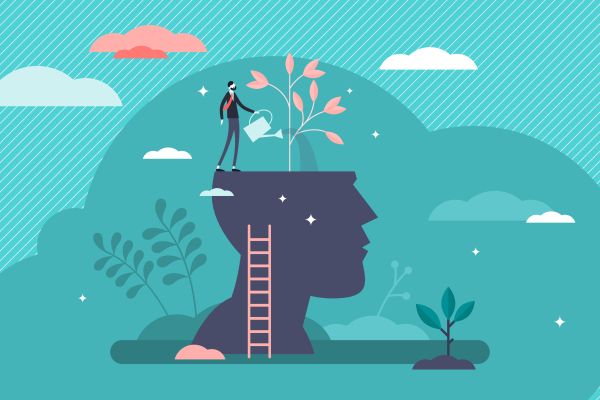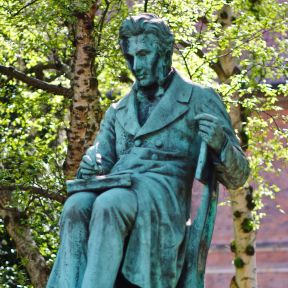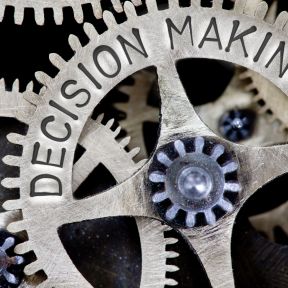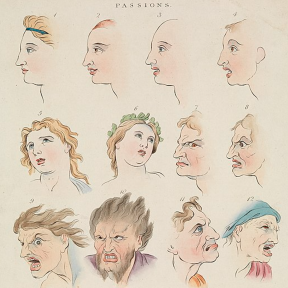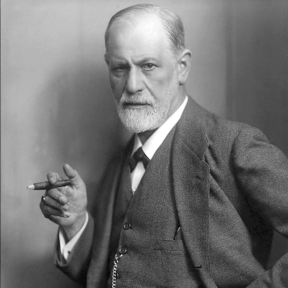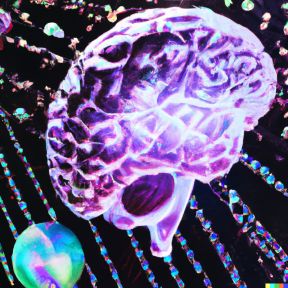
Free Will
Free will is the idea that humans have the ability to make their own choices and determine their own fates. Is a person’s will free, or are people's lives in fact shaped by powers outside of their control? The question of free will has long challenged philosophers and religious thinkers, and scientists have examined the problem from psychological and neuroscientific perspectives as well.

Scientists have investigated the concept of human agency at the level of neural circuitry, and some findings have been taken as evidence that conscious decisions are not truly “free.” Free will skeptics argue that the subjective sense of free will is an illusion. Yet many scholars, as well as ordinary people, still profess a belief in free will, even if they acknowledge that choices are partly shaped by forces outside of one's control.
Behavioral science has made plain that individuals’ behavioral tendencies are influenced by genetics, as well as by factors in the environment that may be outside of a person’s control. This suggests that there are, at least, some constraints on the range of decisions and behaviors a person will be inclined to make (or even to consider) in any given situation. Challengers of the idea that people act the way they do due to conscious, unconstrained choices also point to evidence that unconscious brain activity can partly predict a choice before a conscious decision is made. And some have sought to logically refute the argument that choices necessarily demonstrate free will.
While there are many reasons to believe that a person’s will is not completely free of influence, there is not a scientific consensus against free will. Some use the term “free will” in a looser sense to reflect that conscious decisions play a role in the outcomes of a person’s life—even if those are shaped by innate dispositions or randomness. (Critics of the concept of free will might simply call this kind of decision-making “will,” or volition.) Even when unconscious processes help determine a person’s conscious behavior, some argue, such processes can still be thought of as part of an individual’s will.
Determinism is the idea that every event, including every human action, is the result of previous events and the laws of nature. A belief in determinism that includes a rejection of free will has been called “hard determinism.”
From a deterministic perspective, there is only one possible way that future events can unfold based on what has already occurred and the rules that govern the universe—though that doesn’t mean such events can necessarily be predicted by humans. Someone who believes in free will because they do not take determinism for granted is called, in philosophy, a “libertarian.”
Yes. This is called “compatibilism” or “soft determinism.” A compatibilist believes that even though events are predetermined, there is still some version of free will at work in decision-making. An incompatibilist argues that only determinism or free will can be true.

Whether free will exists or not, belief in free will is very real. Does it matter if a person believes that her choices are completely her own, and that other people’s choices are freely made, too? Psychologists have explored the connections between free will beliefs—often gauged by agreement with statements like “I am in charge of my actions even when my life’s circumstances are difficult” and, simply, “I have free will”—and people’s attitudes about decision-making, blame, and other variables of consequence.
The more people agree with claims of free will, some research suggests, the more they tend to favor internal rather than external explanations for someone else’s behavior. This may include, for example, learning of someone’s immoral deed and agreeing more strongly that it was a result of the person’s character and less that factors like social norms are to blame. (A study of whether reducing free-will beliefs influenced sentencing decisions by actual judges, however, did not show any effect.)
One idea proposed in philosophy is that systems of morality would collapse without a common belief that each person is responsible for his actions—and thus deserves reward or punishment for them. In this view, there is value in maintaining belief in free will, even if free will is in fact an illusion. Others argue that morality can exist in the absence of free-will belief, or that belief in free will actually promotes harmful outcomes such as intolerance and revenge-seeking. Some psychology research has been cited as suggesting that disbelief in free will increases dishonest behavior, but subsequent experiments have called this finding into question.
Mental illness can be thought of, in a sense, as involving additional constraints on the freedom of a person’s will (in the form of rigid thought patterns or compulsions, for instance), beyond the usual factors that shape thinking and behavior. Belief in free will, it has been argued, may contribute to the stigma attached to mental illness by obscuring the role of underlying biological and environmental causes.
There is limited evidence that people who believe more strongly in free will may tend to perceive at least some kinds of choices—such as buying electronics or deciding what to watch on TV—as easier to make, and that they may enjoy making choices more.
Two concepts from psychology that bear similarity to belief in free will are “locus of control” and “self-efficacy.” Locus of control refers to a person’s belief about how much power he has over his life—how important factors like intentions and hard work seem to be compared to external forces such as good luck or the actions of others. Self-efficacy is a person’s sense of her ability to perform at a certain level so as to influence events that affect them. While all of these concepts relate to the factors that steer a person’s life, they are distinct—one can doubt that humans have free will, for example, and still be confident in her ability to win a competition.



